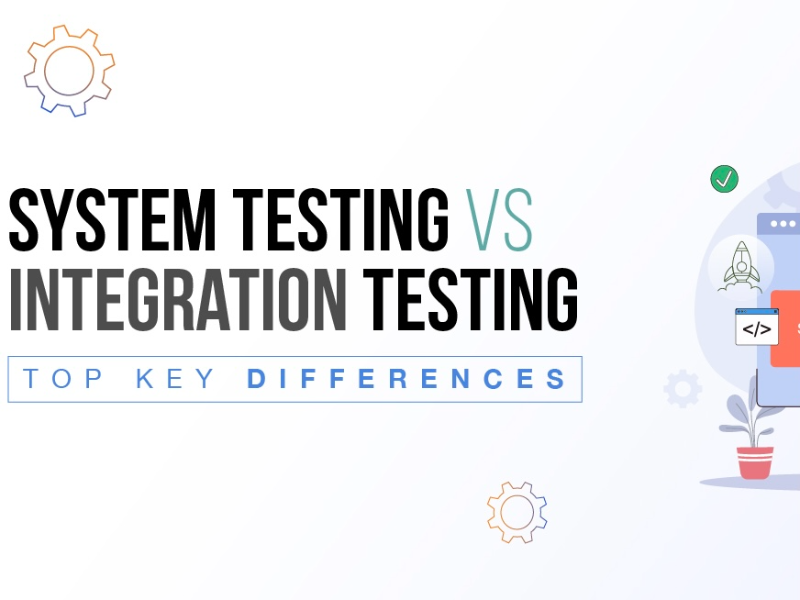- Integration testing and system testing are both critical components of a robust software testing strategy.
- Integration testing focuses on ensuring the interoperability of different modules, while system testing verifies the entire system’s readiness for deployment.
In software development, testing is essential to ensure quality and functionality. Among the various testing methods, integration testing and system testing are pivotal, each with a unique focus and purpose. Understanding and applying these testing methods appropriately is crucial for delivering high-quality software that meets user expectations and business needs.
What is integration testing
Integration testing focuses on verifying the interactions between different modules or components of a software system. After individual units have been tested, integration testing is conducted to ensure that these units work together correctly. This type of testing identifies issues that may arise when integrating different parts of the system, such as data flow problems, interface mismatches, and communication errors.
Also read: Key management server: Guardian of a secure digital world
There are several strategies for conducting integration testing, including top-down, bottom-up, and big bang. In the top-down approach, testing starts from the topmost module and moves downward, whereas, in the bottom-up approach, testing begins with the lower-level modules. The big bang approach, however, integrates all modules at once and tests them together, which can be risky if issues are found, as it complicates identifying the source of problems.
For a better understanding, an example of integration testing might involve testing the interaction between a database and an application’s frontend. This could include verifying that data entered through the user interface is correctly processed and stored in the database.
What is system testing
System testing, on the other hand, is a comprehensive testing process that assesses the entire system’s functionality as a whole. This type of testing is conducted after integration testing and ensures that the system meets the specified requirements. It covers both functional and non-functional aspects of the system, such as usability, performance, security, and compatibility.
Also read: Mercury cuts services in Ukraine, Nigeria amid compliance shift
The pattern involves executing test cases that simulate real-world scenarios to validate the system’s behaviour under various conditions. It is generally performed in a controlled environment that mimics the production environment as closely as possible.
For an e-commerce platform, system testing would include scenarios such as browsing products, adding them to a cart, processing payments, and handling transactions, thus ensuring that the entire system works as expected.
What are the differences between integration and system testing
The two testing approaches share different focuses and objective. Integration testing focuses on interactions between modules, ensuring that they work together correctly. While system testing assesses the entire system’s functionality, ensuring it meets all business and technical requirements.
As for the scope the two approaches applied, integration testing is limited to the connections and interactions between integrated components. And system testing encompasses the whole system, including all integrated components and their functionality.
There is difference is their timing in development cycle as well. Integration testing usually performs after unit testing and before system testing, serving as an intermediate check. System testing is conducted after integration testing and is typically one of the final testing phases before the product is released.
Finally, in the testing environment, integration testing may use simulated interfaces to focus on inter-module communication, while system testing utilises an environment closely resembling the live production setup to ensure real-world functionality.

